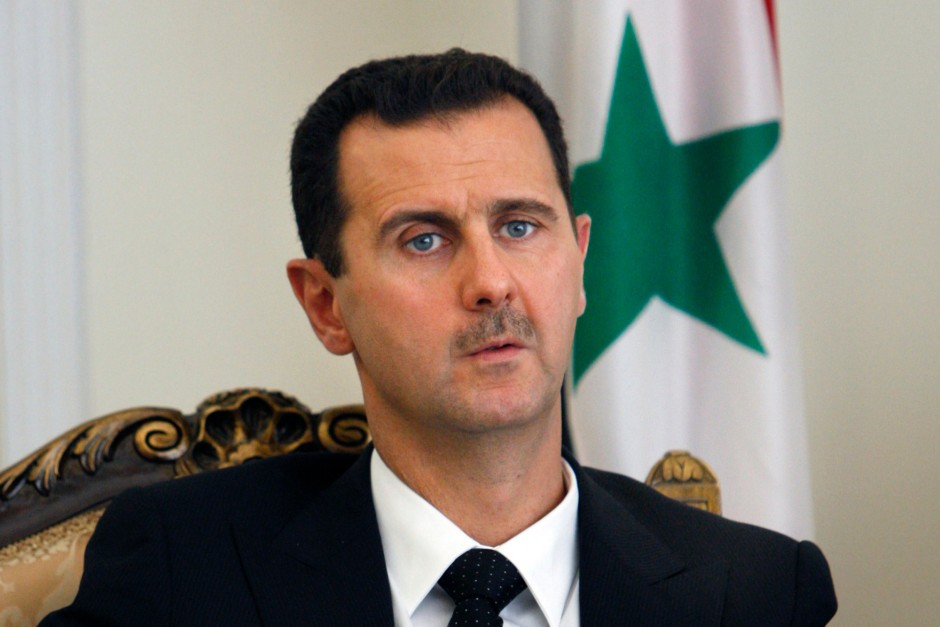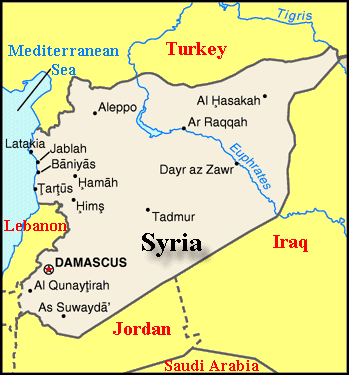Bashar Assad, Syria’s embattled but defiant president, will stop at nothing to ensure his survival and that of his Baathist regime.
A case in point is the popular uprising that broke out in Syria three years ago this month.
The revolt, the bloodiest in Syria’s often violent history, has morphed into a civil war that has pulverized the country, devastated its economy, claimed the lives of more than 140,000 civilians and combatants, driven 9.5 million Syrians from their homes and created a refugee crisis of historic proportions.
Yet Assad, who inherited the presidency from his father 14 years ago, would rather pound his opponents into oblivion than discuss a peaceful political transition or share power with them.
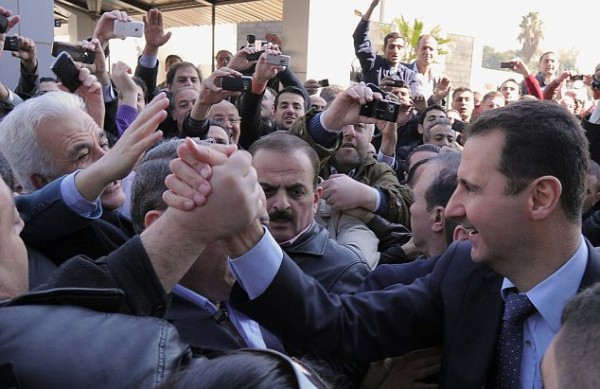
Assad’s intransigence is rooted in an inflated, insufferable sense of entitlement, but fear has also shaped his outlook.
As he ponders the outcome of the Arab Spring rebellions, which resulted in the ouster of three of his fellow authoritarian rulers — Zine al-Abidine Ben Ali In Tunisia, Hosni Mubarak in Egypt and Ali Abdullah Saleh in Yemen — and the cold-blooded murder of a fourth one, Muammar Gaddafi in Libya, he prefers to tough it out rather than give up.
And that is precisely what he is doing to preserve his family dynasty.
In Tunisia, Yemen and Egypt, the army ultimately turned on and abandoned Ben Ali, Saleh and Mubarak. The situation in Syria is different. So far, Assad has been able to count on the steadfast loyalty of the armed forces, the chief arbiter of Syrian affairs. True, Syrian soldiers and officers have defected to the rebel cause. The senior military leadership, however, is backing Assad unwaveringly.
After losing ground to the rebels in the first two years of the revolt, the Syrian government has begun to regain territory.
James Clapper, the director of U.S. national intelligence, said last month that the Assad regime has strengthened its hold on the country in the past year. But the fighting has not yet produced a clear winner. Much of the north, for example, is still held by the rebels, who have seized control of much of Syria’s gas and oil resources.
By all accounts, Syria has retaken the military initiative since last summer’s Russian-brokered agreement that obligated Assad to destroy his arsenal of chemical weapons in exchange for a promise by the United States not to bomb Syria.
President Barack Obama had threatened to launch cruise missile attacks in response to a Syrian government chemical attack on civilians near Damascus on Aug. 21. He backed down after Russia offered a save-facing diplomatic solution which, for all intents and purposes, buys time for Assad and thus serves his long-term interests
Assad, a member of the minority Alawite sect, an offshoot of Shiite Islam, is not as isolated as some think, given his staunch and dependable allies. He can rely on Iran, his main regional ally, which has dispatched its Al Quds force to Syria and is playing a pivotal role in keeping the Syrian economy afloat. Russia, Assad’s superpower friend, has replenished his armoury and vetoed three United Nations’ Security Council resolutions on his behalf.
U.S. Secretary of State John Kerry has sharply criticized Russia’s position, having accused Moscow of encouraging Assad and sabotaging the prospects of a diplomatic accord. Vladimir Putin, the Russian president, has ignored Kerry’s admonition, particularly since Washington’s denunciation of Russia’s aggressive move into Crimea. Putin’s hard line on Syria is determined by yet another factor. Syria has been a Russian client state since the Cold War, and Russia has no intention of jeopardizing its standing in Damascus.
While Russia sells Syria its latest weapons, the United States refuses to send arms to the rebels, fearing they will fall into the hands of jihadists, who have grown stronger and more confident and have effectively hijacked the uprising.
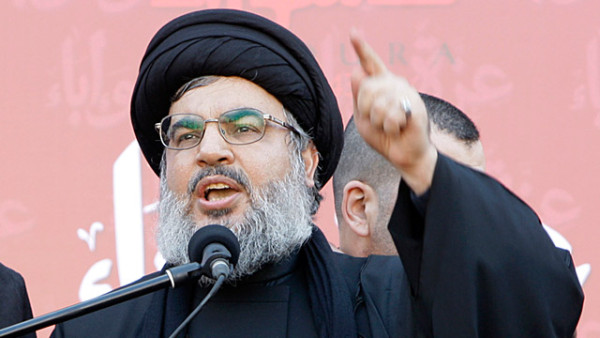
Hezbollah, the Lebanese political/military organization, is assisting Assad as well. Last autumn, Hezbollah foot soldiers helped Syria turn the tide in an important battle near Syria’s border with Lebanon. Hassan Nasrallah, Hezbollah’s leader, has pledged fealty to Syria come what may. In return, Syria supplies Hezbollah with advanced missiles, some shipments of which have been bombed by Israel.
More importantly, perhaps, Assad reaps benefits from the messy spectacle of disunity within rebel ranks. The Supreme Military Council, the rebel body tasked with coordinating military strategy and foreign support, is in utter disarray.
Naturally, the Syrian government has exploited the infighting for its own ends, having portrayed the rebel movement as a foreign-backed terrorist entity plotting to dismember Syria.
This, of course, is a blatant lie.
The uprising is essentially a backlash against a brutal totalitarian regime that has flagrantly abused its powers. Yet no one can deny that the rebels have received aid from U.S.-allied sponsors such as Saudi Arabia, Qatar and Turkey.
Syria has used all the means at its disposal — air power, indiscriminate artillery barrages and the tactic of blocking humanitarian aid deliveries to besieged civilians — to batter and hammer the rebels. Not surprisingly, Syria’s bombardments have prompted the United Nations to accuse the Assad regime of war crimes.
At the urging of the UN, Syrian government representatives and the rebels have met twice in Geneva for peace talks. Both sessions ended in stalemate, and a date for a third round of negotiations has not been set.
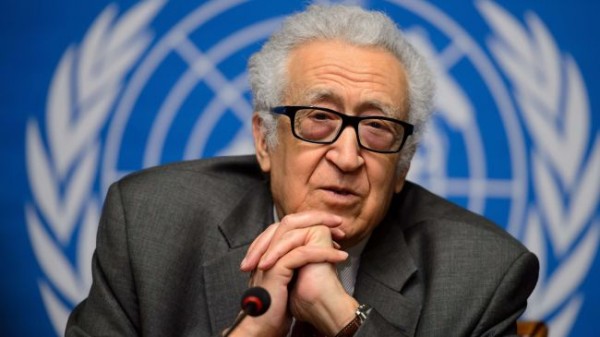
The UN mediator, the Algerian diplomat Lakhdar Brahimi, has tacitly blamed the Syrian government for the breakdown, saying it has refused to discuss the rebels’ demands. The opposition is primarily interested in discussing the formation of a transitional government without Assad’s participation. The regime’s priority is to squelch what Syrian Foreign Minister Walid Moallem has described as rebel terrorism.
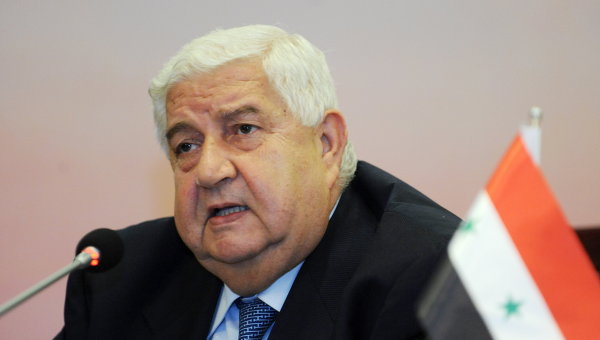
The United States, which has had tense relations with Syria, holds the Syrian regime responsible for the lack of progress. Washington argues that Syria has thrown a monkey wrench into the works by placing rebel delegates on a terrorist list, seizing their assets and detaining some of their relatives.
In the meantime, thousands of Syrian refugees are pouring into neighbouring countries like Turkey, Lebanon and Jordan, straining their hospitality and economies.
At least 500,000 refugees live in encampments in Turkey, whose cordial and mutually beneficial commercial relationship with Syria collapsed in a welter of acrimony after Turkish Prime Minister Recep Tayyip Erdogan bitterly criticized Assad’s brutal response to the uprising.
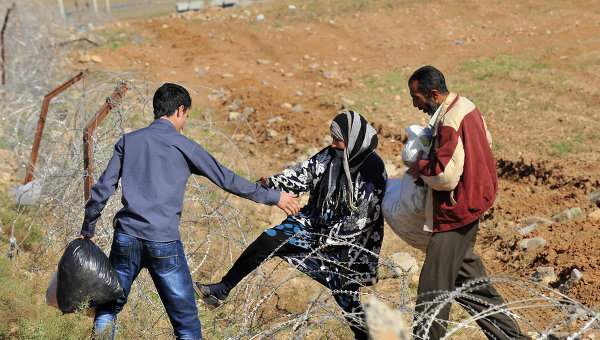
As the fighting escalates, the refugee problem is likely to grow worse. According to reports, Syrian strategy is to recapture rebel-held areas while driving out their Sunni inhabitants in a pattern of ethnic cleansing.
The civil war in Syria, a disaster for the Arab world, is growing uglier by the day, but it may drag on for years and transform Syria into a charnel house. It’s not an inconceivable scenario. The civil war in next-door Lebanon, which involved Syria, lasted for 15 years.
As the wheels of diplomacy grind on, Syria is disintegrating.
